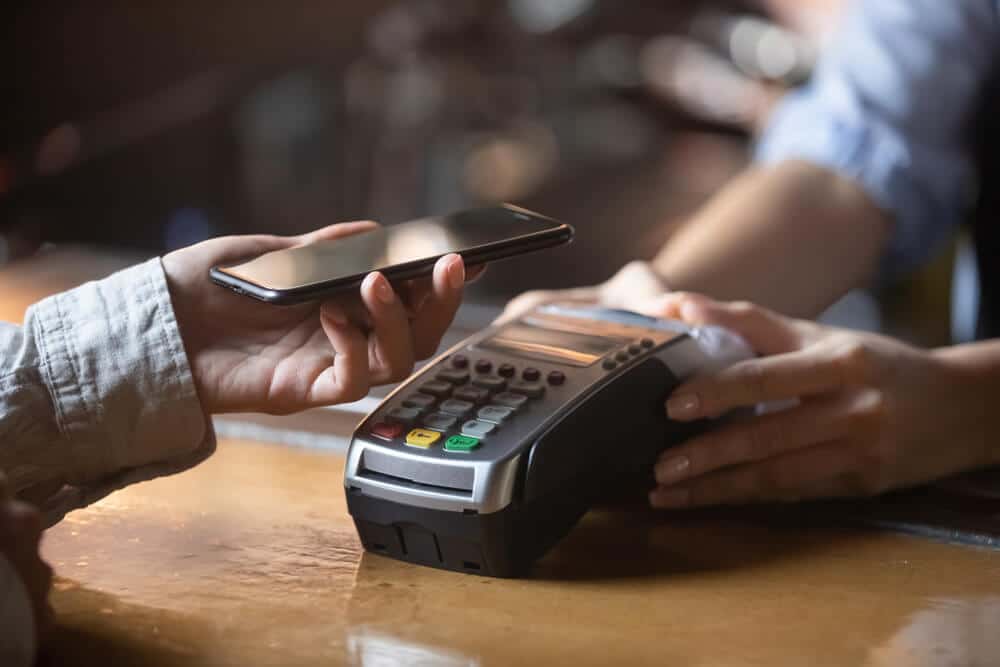If you are struggling with debt, an Individual Voluntary Arrangement (IVA) may be a debt solution worth considering.
An IVA is a legally binding agreement between you and your creditors, which is managed by an Insolvency Practitioner (IP).
It allows you to make affordable monthly payments towards your debts over a set period of time, usually five years.
An IVA can be a good option if you have unsecured debts of £10,000 or more, and you are struggling to keep up with your repayments.
It can help you to become debt-free, while also protecting you from further legal action by your creditors.
To set up an IVA, you will need to work with an IP, who will assess your financial situation and help you to put together a proposal for your creditors.
This proposal will outline how much you can afford to pay each month, and how long the IVA will last.
If your creditors agree to the proposal, they will be legally bound to accept the terms of the IVA.
This means that they will not be able to take any further legal action against you, and they will be required to write off any remaining debt at the end of the IVA.
It is important to note that an IVA will have an impact on your credit rating, and it will be recorded on your credit file for six years.
However, this may be a small price to pay for becoming debt-free.
Overall, an IVA can be a good debt solution for those who are struggling with unmanageable debts.
It is important to work with an experienced IP to ensure that you get the best possible outcome for your financial situation.
We’ve helped over 250,000 with their debt
Spending Restrictions in IVA
When you enter into an IVA, you will be subject to spending restrictions.
These restrictions are put in place to ensure that you can repay your debts while still maintaining a reasonable standard of living.
Your IVA provider will work with you to create a budget that takes into account your income and expenses.
This budget will include all of your essential expenses, such as rent or mortgage payments, utility bills, and food.
Any non-essential spending will be restricted. This means that you will not be able to spend money on things like luxury items, holidays, or eating out.
If you need to make a purchase that is not included in your budget, you will need to get approval from your IVA provider first.
It is important to stick to your budget and spending restrictions while you are in an IVA.
If you overspend or make purchases without approval, it could jeopardize your ability to complete the IVA successfully.
Overall, the spending restrictions in an IVA are designed to help you get out of debt while still maintaining a reasonable standard of living.
By sticking to your budget and working with your IVA provider, you can successfully complete your IVA and become debt-free.
How we helped Paige
Customer monthly repayments before and after entering an IVA

Repayments reduced by 70%
Monthly payments are based on individual financial circumstances
Payment Guidelines
When you enter into an IVA, you will be required to make regular payments towards your debts.
These payments will be based on what you can afford, and will be calculated by your Insolvency Practitioner (IP).
It is important that you keep up with your payments, as failure to do so could result in your IVA being terminated.
Monthly IVA Payments
Your IVA payments will be made on a monthly basis, and will typically last for a period of five to six years.
The amount you pay will be based on your disposable income, which is the money you have left over after paying your essential living expenses.
Your IP will work with you to determine what your disposable income is, and will calculate your monthly payments accordingly.
It is important that you are honest and transparent with your IP about your income and expenses, as this will help ensure that your payments are affordable.
Payment Break
If you experience a change in circumstances that makes it difficult for you to keep up with your IVA payments, you may be able to take a payment break.
This will allow you to temporarily suspend your payments for a period of time, until your financial situation improves.
However, it is important to note that taking a payment break will extend the length of your IVA, and may result in you paying more overall.
You should only take a payment break if it is absolutely necessary, and you should discuss this with your IP before making any decisions.
Lump Sum Payment
If you receive a windfall or come into some money during your IVA, you may be able to make a lump sum payment towards your debts.
This can help you to pay off your debts more quickly, and may even result in your IVA being completed early.
However, it is important to discuss this with your IP before making any lump sum payments, as there may be restrictions on how much you can pay and when you can pay it.
Your IP will be able to advise you on the best course of action based on your individual circumstances.
Overall, it is important that you understand the payment guidelines for your IVA, and that you keep up with your payments to ensure the success of your IVA.
If you have any questions or concerns about your payments, you should discuss these with your IP as soon as possible.
Income and Expenditure
Income
When entering into an Individual Voluntary Arrangement (IVA), your income will be assessed to determine your ability to make repayments.
This will include any wages, benefits, pensions, or other sources of income that you receive.
If your income is below a certain threshold, you may be eligible for an IVA. The additional income threshold is the amount of money you are allowed to keep each month after your essential living expenses have been deducted. This threshold varies depending on your circumstances and is determined by your Insolvency Practitioner.
Expenditure
Your expenditure will also be assessed as part of the IVA process. This includes all of your regular monthly expenses such as rent/mortgage, utilities, food, and transportation costs.
To ensure that you can afford the IVA repayments, your Insolvency Practitioner will require you to provide detailed information about your expenditure.
This will help to determine your disposable income, which is the amount of money you have left over each month after your essential living expenses have been deducted.
It is important to note that during the IVA, you will be subject to spending restrictions. This means that you will need to live within a strict budget and avoid any unnecessary expenses.
Your Insolvency Practitioner will work with you to create a realistic budget and ensure that you are able to meet your repayment obligations.
In summary, when entering into an IVA, your income and expenditure will be assessed to determine your ability to make repayments.
You will need to provide detailed information about your expenses and live within a strict budget during the IVA.
They actually care about their customers
I can’t rate this company highly enough. Extremely understanding, knowledgeable, and supportive staff.
Banking During IVA
When you enter into an Individual Voluntary Arrangement (IVA), you will be subject to certain spending restrictions.
One area where you will need to be particularly careful is your banking. In this section, we will discuss how to manage your bank accounts and bank statements during an IVA.
Bank Accounts
During an IVA, you will need to keep your bank accounts in good order. This means that you should not incur any overdraft charges or go over your agreed limit.
You should also avoid opening any new bank accounts or applying for new credit cards.
It is important to note that your IVA supervisor may require you to open a new bank account if your current account is with a bank that you owe money to.
This is to prevent the bank from taking any money from your account to pay off your debts.
Bank Statements
Your IVA supervisor will need to see your bank statements on a regular basis. This is to ensure that you are sticking to your agreed spending limits and are not incurring any unnecessary charges.
It is important to keep your bank statements organised and up-to-date. You should file them in a safe place and make sure that you can easily access them when needed.
You may also want to consider setting up online banking so that you can check your account balance and transactions at any time.
If you are having difficulty managing your bank accounts or bank statements during your IVA, it is important to speak to your IVA supervisor.
They will be able to offer advice and support to help you stay on track.
Remember, during an IVA, your banking will be subject to certain restrictions. By following these guidelines and keeping your accounts in good order, you can ensure that your IVA runs smoothly and you can achieve financial freedom.
Debt Management
When dealing with an Individual Voluntary Arrangement (IVA), it is essential to manage your debts effectively.
There are two types of debts: secured debts and unsecured debts. Understanding the difference between the two will help you manage your debts better.
Secured Debts
Secured debts are debts that are secured against an asset, such as a house or a car. If you do not keep up with the payments, the creditor can repossess the asset to recover the debt.
In an IVA, you must continue to make payments on your secured debts. Failure to do so may result in the creditor repossessing the asset.
Unsecured Debt
Unsecured debts are debts that are not secured against an asset. Examples of unsecured debts include credit card debts, personal loans, and overdrafts.
In an IVA, you will make one affordable payment each month towards your unsecured debts. This payment will be distributed among your creditors.
The amount you pay will depend on your income and expenditure.
When managing your debts, it is important to communicate with your creditors. Let them know that you are in an IVA and that you are making payments towards your debts.
If you are struggling to make your payments, speak to your Insolvency Practitioner (IP) immediately.
They may be able to help you negotiate new payment terms with your creditors.
In conclusion, managing your debts is an essential part of an IVA. Understanding the difference between secured and unsecured debts will help you manage your debts effectively.
Communicating with your creditors and your IP is also important. By following these steps, you can successfully manage your debts and complete your IVA.
Credit Impact
Credit Score
When you enter an IVA, your credit score will be negatively impacted. This is because an IVA is a form of insolvency and is recorded on your credit file for six years.
Your credit score is used by lenders to determine your creditworthiness, and a lower score may make it more difficult to obtain credit in the future.
During your IVA, you may find it difficult to obtain credit, as most lenders will view you as a high-risk borrower.
Even after your IVA has been completed, your credit score may take some time to recover. However, it is important to note that it is possible to rebuild your credit score over time by making regular payments and maintaining a good credit history.
Applying for Credit
If you need to borrow money during your IVA, you will need to obtain permission from your insolvency practitioner.
They will need to approve any new credit agreements, and you may be limited in the amount you can borrow.
It is important to note that any new credit agreements will be recorded on your credit file and may further impact your credit score.
After your IVA has been completed, you may still find it difficult to obtain credit.
Lenders will view you as a high-risk borrower, and you may be required to pay higher interest rates or provide additional security to obtain credit.
It is important to be cautious when applying for credit after your IVA has been completed.
You should only apply for credit that you can afford to repay, and avoid taking on too much debt.
This will help to protect your credit score and ensure that you are able to obtain credit in the future.
Living Expenses
When you enter into an Individual Voluntary Arrangement (IVA), you will be required to adhere to certain spending restrictions.
These restrictions are in place to ensure that you can make the agreed-upon payments towards your debts.
In this section, we will discuss the living expenses that are allowed under an IVA.
Essential Living Expenses
Essential living expenses are those that are necessary for you to maintain a basic standard of living.
These expenses will typically be allowed under an IVA. Some examples of essential living expenses include:
- Rent or mortgage payments
- Council tax payments
- Utility bills (gas, electricity, water)
- Food and groceries
- Clothing
- Travel expenses (for work or medical appointments)
It is important to note that the specific expenses that are considered essential may vary depending on your individual circumstances.
Your IVA supervisor will work with you to determine what expenses are necessary for you.
Luxuries
Luxuries, on the other hand, are not considered essential and may not be allowed under an IVA.
These expenses are typically those that are not necessary for your basic standard of living. Some examples of luxuries include:
- Holidays
- Eating out at restaurants
- Premium cable TV packages
- Expensive clothing or accessories
- Gym memberships
If you are unsure whether an expense is considered a luxury or essential, it is best to consult with your IVA supervisor before making the purchase.
Overall, it is important to remember that the purpose of an IVA is to help you manage your debts and get back on track financially.
While some spending restrictions may be difficult, sticking to them will ultimately help you achieve your financial goals.
Debt Calculator
Emergency Fund and Expenses
Emergency Fund
An emergency fund is a crucial part of any financial plan, and it’s especially important when you’re in an Individual Voluntary Arrangement (IVA).
Your emergency fund should be a separate savings account that you can access quickly and easily in case of an emergency.
You should aim to have at least three to six months’ worth of living expenses saved in your emergency fund.
This will give you peace of mind knowing that you have a financial safety net in case of unexpected events such as job loss or illness.
Emergency Expenses
Even with an emergency fund, unexpected expenses can still occur. These expenses can include things like car repairs, medical bills, or home repairs.
It’s important to have a plan in place for how you will handle these expenses.
One option is to use your emergency fund to cover the expense. If the expense is larger than your emergency fund, you may need to consider other options such as borrowing money or negotiating a payment plan with the creditor.
It’s important to remember that any expenses outside of your normal living expenses should be considered carefully.
You should ask yourself if the expense is truly necessary and if there are any alternatives or cheaper options available.
In summary, having an emergency fund and a plan for unexpected expenses is crucial when you’re in an IVA.
It can provide peace of mind and help you avoid further financial difficulties.
Other Considerations
Holiday During an IVA
While you are on an IVA, it is important to be aware of the restrictions on spending. However, you may still be able to go on holiday during this time.
It is important to discuss this with your IVA supervisor and get their approval before making any bookings.
You may be required to provide evidence of the cost of the holiday and how you plan to pay for it. It is also important to ensure that the cost of the holiday is reasonable and within your budget.
If your IVA supervisor approves your holiday, it will be included in your monthly budget.
Windfall Clause
The windfall clause is an important consideration when you are on an IVA.
This clause requires you to pay a percentage of any unexpected income you receive during the IVA towards your debts.
This can include inheritances, lottery winnings, or compensation payouts.
The percentage you are required to pay will depend on the terms of your IVA.
It is important to be aware of this clause and to inform your IVA supervisor of any unexpected income you receive.
Failure to do so could result in your IVA being terminated.
It is also important to note that the windfall clause does not apply to income you receive as part of your regular salary or wages.
It only applies to unexpected income that you receive during the IVA.
Overall, it is important to be aware of these considerations when you are on an IVA.
By understanding the restrictions on spending and the windfall clause, you can ensure that you stay on track and successfully complete your IVA.
Seeking Debt Advice
If you are struggling with debt, seeking debt advice is an important step towards taking control of your financial situation.
Debt advice can help you understand your options and make informed decisions about how to deal with your debts.
There are a number of organisations that can provide debt advice, including charities, government agencies, and private companies.
It is important to choose an organisation that is reputable and trustworthy. Look for organisations that are accredited by the Financial Conduct Authority (FCA) or the Money Advice Service.
One option for debt advice is to speak to an insolvency practitioner. Insolvency practitioners are licensed professionals who can help you with debt management and insolvency issues.
They can provide advice on individual voluntary arrangements (IVAs), debt management plans, and Bankruptcy.
By working with professionals and using money management tools, you can develop a plan for paying off your debts and achieving financial stability.





